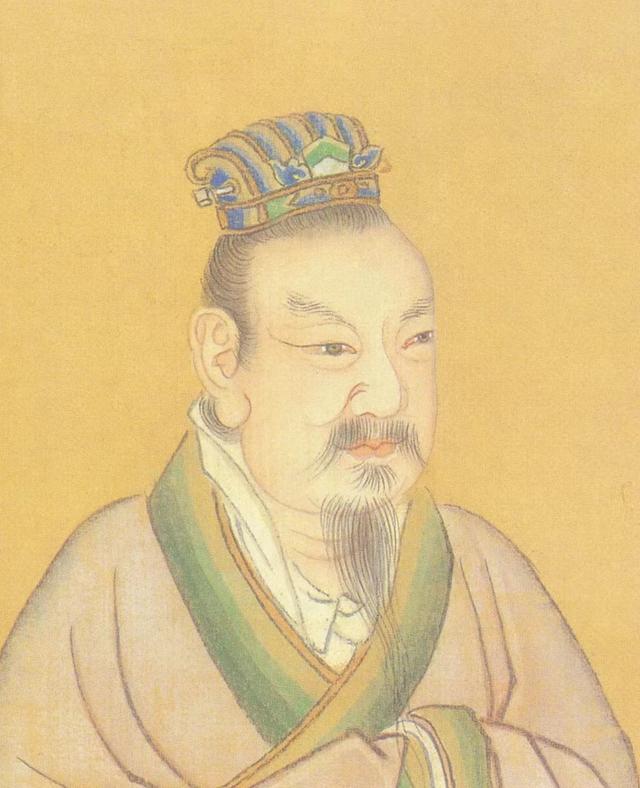Guqin Story - Cai Yong Listening to the Qin
During the reign of Emperor Ling of the Eastern Han Dynasty, there was a minister named Cai Yong, who was upright and honest, with no room for sand in his eyes. For some bad phenomena, he always dared to speak bluntly to the Emperor Ling. Not only did he treat the government in this way, but Cai Yong's research on the qin was also the same: if there was a small mistake in playing, it would definitely not escape his ears; and he had a lot of expertise in the selection, production, and tuning of the qin. A set of brilliant and unique insights.

Cai Yong (133-192)
The character Bojiao was a writer and calligrapher in the Eastern Han Dynasty, and the father of the talented Cai Wenji. Proficient in rhythm, talented, teacher Hu Guang, a famous scholar. Compilation of "Qin Cao" (ancient Chinese qin music works): the whole book has a total of 47 tunes classified and recorded, divided into four categories, respectively describing the author, destiny, creation background or stories related to the works, etc. lyrics.
Career experience: Cai Yong refused to be recruited by the imperial court in his early years, and was later conscripted as a vassal of Situ, serving as Heping Chief, Langzhong, and Yilang. Later, he was exiled to Shuofang due to his crimes, and after several setbacks, he took refuge in Jiangnan for twelve years. When Dong Zhuo was in power, he forced Cai Yong as a sacrificial wine. Within three days, he had successively held positions such as the Imperial Clerk, the Imperial Clerk, the Minister of the Book, the Zhong Shi, and the General Zuo Zhong Lang. After Dong Zhuo was executed, Cai Yong was imprisoned for lamenting on the throne of Wang Yun, and soon died in prison at the age of sixty.
The original text of "The Book of the Later Han Dynasty, Volume 60, and Biography of Cai Yong, Volume 50"
Wu people have burnt tong for cooking. Yong heard the sound of fire and knew its good wood, and cut it into a qin because of the request. If it has a beautiful sound, its tail is still burnt, so it was called "Yuwei qin" at that time.
At the beginning, Yong was in Chenliu. There are neighbors who call Yong with wine and food, and they drink wine to be intoxicated. The guest was playing the qin on the screen, and when Yong went to the door to try to listen to it, he said, "Hey! You have the intention to kill me by calling me with music, right?" He responded. The commander told the master: "Cai Jun has always come, and he is leaving at the door."
Yongsu was the sect of Bangxiang, and the owner rushed after himself and asked why, and Yongsu reported it, and everyone was embarrassed. The person playing the qin said: "I went to the drum string and saw the cicada chirping in the direction of the mantis. The cicada was about to leave but didn't fly, and the mantis was one of the first and the other. My heart was soaring, for fear that the mantis would be lost. How could this be the result of killing the mind? Who is the voice?"
Yong Wan smiled and said, "That's enough.
translation
When Cai Yong was in Wudi (now in Jiangsu and Zhejiang), he heard the sound of a piece of paulownia cracking in the fire. He knew it was a good piece of wood, so he picked it out and made it into a qin. It was burnt, so people called it Jiaowei Qin at that time.
At first, Cai Yong lived in Chenliu, and one of his neighbors prepared wine and food to invite him to a banquet. When he went, the neighbors were already drinking. There was a guest who was playing the piano behind the screen. Cai Yong went to the neighbor's door and listened quietly, saying, "Ah! I used music to invite me, but I have murderous intentions, what's the matter?" So he went back. The person who invited him told the master, "Mr. Cai just came, and he left again at the door."
Cai Yong has always been respected by the villagers. The owner quickly chased after him and asked the reason. Cai Yong told him everything, and everyone felt disappointed. The guest who played the piano said: "When I was playing the piano just now, I saw a praying mantis about to pounce on the cicada, but the cicada would fly away, but the mantis' movements were one after the other. I was a little worried, lest the mantis lose its chance. , is this the so-called murderous intention revealed in the music?"
Cai Yongwan smiled and said, "That's enough to show."
 渝公网安备 50010702504639号
渝公网安备 50010702504639号